Installing a corrugation for a toilet: how to do everything correctly and safely?
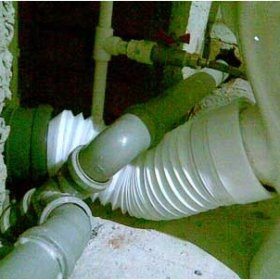
With the introduction of new technologies, much in our lives becomes easier, faster and more comfortable. A variety of household appliances, mobile devices and communications are so addictive that it is already hard to imagine how one could live without all this. The construction and communications technologies are changing for the better. Just a couple of decades ago, simply replacing the toilet was a big problem. It was necessary to choose new plumbing so that the output exactly coincided with the drainage. Otherwise, large-scale fuss with the replacement of cast-iron pipes could not be avoided. But then plastic appeared, and the corrugations for the toilet replaced the massive bends. And all at once it became much easier. Now the replacement of sanitary ware does not require either special knowledge, qualifications, or many hours of effort.
What is a toilet corrugation and why is it needed?
Corrugation is just a plastic branch, which differs from all others in its flexibility. In addition, the length of the corrugation also varies - it can be stretched to the size you need (within reasonable limits, of course).
This miracle of modern civilization is used not only for toilets, but also for bathtubs, sinks and washbasins, and the difference is only in diameter.
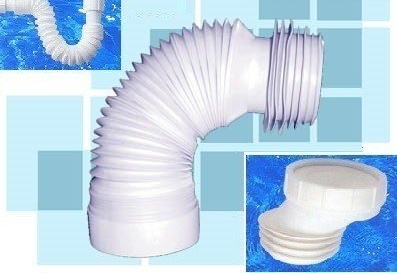
This tap connects the toilet outlet to the sewer pipe. And their relative position does not matter. The main thing is that the sewer is below the toilet drain, otherwise the water will simply not flow
High-quality corrugation is the key to system security
Of great importance is the choice of high-quality corrugation. As you know, the assortment of goods in construction stores, as they say, for every taste and budget. In our case, we need to focus only on quality. The corrugation for connecting the toilet is not so expensive as to save a lot, and there can be many problems with leaking outflow and indignant neighbors.
Unfortunately, domestic products in this area are still significantly inferior to imported counterparts. So it is better to opt for the corrugation of European manufacturers. In addition, there are samples made only of plastic and reinforced with metal wire. The second is definitely better. They flow less, do not sag and last longer.
In small bathrooms, where you need to simultaneously install a large number of plumbing, and even place a washing machine, sometimes there simply is not enough space for such a number of taps on the sewer pipe. Then the corrugation for the toilet with a tap is used. It will be a salvation if the sink or bath is located in the immediate vicinity of the toilet.
When purchasing corrugation, do not forget to buy a spray can with sanitary sealant. Many manufacturers claim that you can do without it, but "God saves the safe."
“The case of the master is afraid” - proceed to the installation
The first stage of installation of the corrugation is best done before installing the toilet in its permanent place - this is more convenient. If the plumbing is new, you do not need to prepare it for connection. If you change the drain on the old toilet, clean its outlet from the remnants of the old sealant or cement mortar - any deposits can adversely affect the tightness of the connection.
Now we apply a little sealant to the outlet from the outside and put on that edge of the corrugation where the inner membrane is located. The branch should cover the edge of the outlet by 5-6 cm. Carefully ensure that there are no distortions. The corrugation should be worn evenly.
Let the sealant dry and replace the toilet. It remains only to connect the outlet to the sewer system and the installation of the toilet corrugation will be completed. To do this, insert the edge with an external seal into the pre-cleaned hole until it stops. It is absolutely not necessary to seal this joint, but this procedure cannot be damaged.
That's all, it remains only to check whether everything turned out as it should. To do this, you can wait until the tank is connected to the water supply and several times drain water from it, or you can use a bucket - just pour about 10 liters of liquid into the toilet at a time. If it doesn’t flow, everything is in order, you can use it.
Some useful tips
When the toilet is far from the wall, it is important to choose the length of the corrugation. Of course, it stretches, but everything has its limit, and if you stretch the pipe too much, its walls become thinner and their strength decreases greatly.
Do not, before installing the corrugation on the toilet, stretch it. Do this immediately before connecting to the sewer. Otherwise, you risk stretching the bend too much.
Do not allow the corrugation to sag in the middle. This can lead to accumulation of fecal masses at the lower point and, as a result, to blockage. If the toilet outlet and sewer pipe are located high enough, you need to arrange for the corrugation support from improvised materials.
Recently, it is customary to close communications with protective screens or boxes with a door, and use the enclosed space as a storage for various little things. On the one hand, this is correct - it looks beautiful and the place is not empty. Just do not forget that the corrugation is not a cast-iron pipe. Under the weight of a can of paint, it can bend, and then burst. Conclusion: do not put heavy objects on the corrugated pipe, this is fraught with leakage.
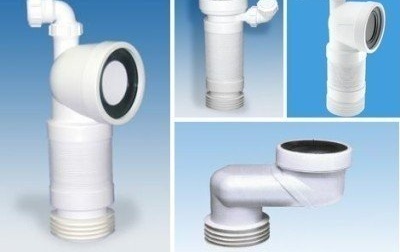
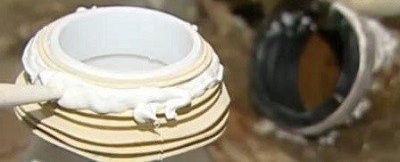
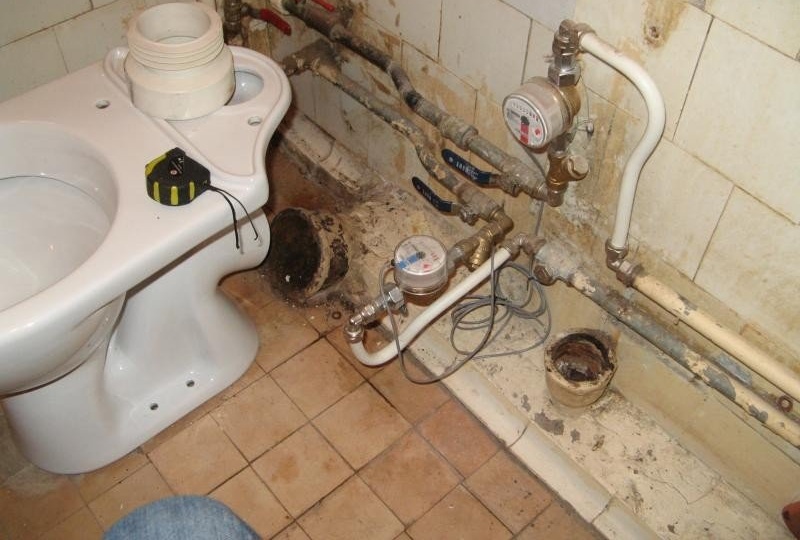
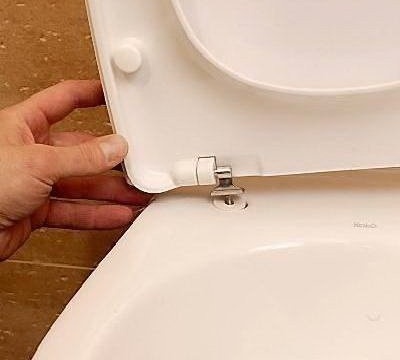
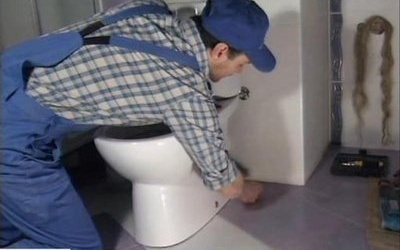
2 comments